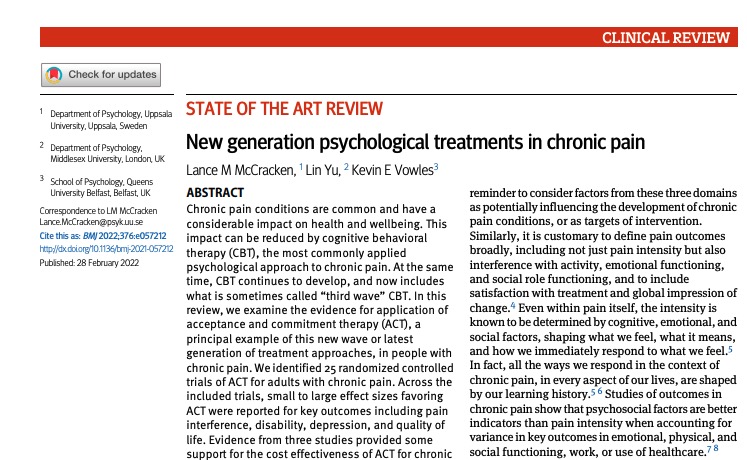This clinical review offers valuable insights into the application of ACT for treatment of chronic pain.
Download paper here
McCracken, L. M., Yu, L., & Vowles, K. E. (2022). New generation psychological treatments in chronic pain. The BMJ, 376, Article e057212.
Study overview
The purpose of this review was to provide an updated, comprehensive, and inclusive summary of the evidence for ACT in the treatment of chronic pain, including headaches. The review covers long-term outcomes, cost-effectiveness, mechanisms of change, and factors that may moderate or predict treatment outcomes.
In trials evaluating treatments for chronic pain, it is recommended to include various clinical outcome measures that cover domains such as pain, physical functioning, emotional functioning, role functioning, and coping, whenever possible. The studies reviewed for this study frequently used measures of pain, pain interference, disability, depression, anxiety, and quality of life.
Key findings
- 25 randomised controlled trials of ACT for chronic pain were identified.
- ACT demonstrates significant benefits for chronic pain, including reductions in pain interference, disability, and depression, as well as improved quality of life. The evidence suggests that ACT is comparable to traditional CBT, but with stronger support for its specified processes of change.
- Some evidence showing cost effectiveness of ACT for chronic pain based on three studies.
- Theoretical processes of change, specifically psychological flexibility, played a mediating role in treatment outcomes.
You may also find our knowledge hub post Chronic Pain and ACT useful for background reading on this topic.





